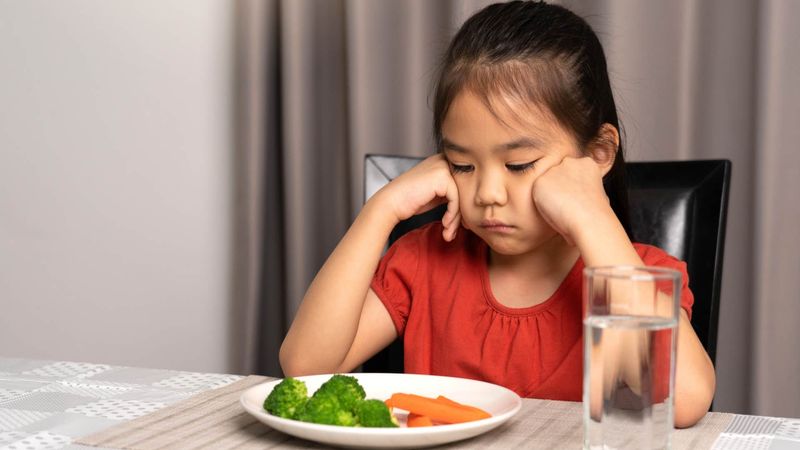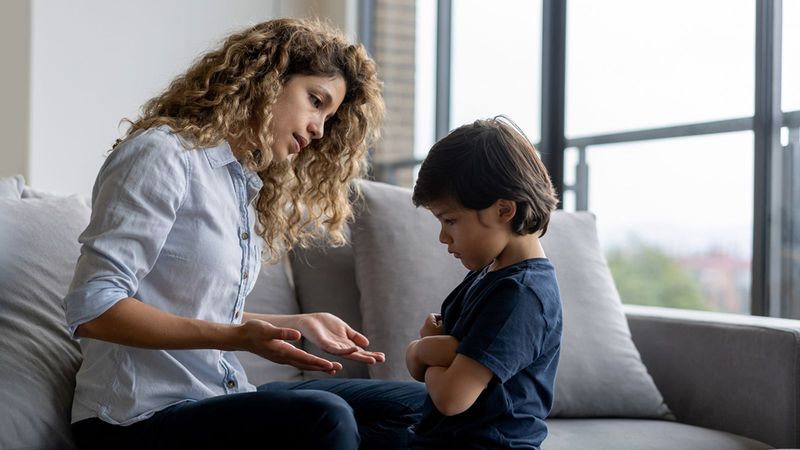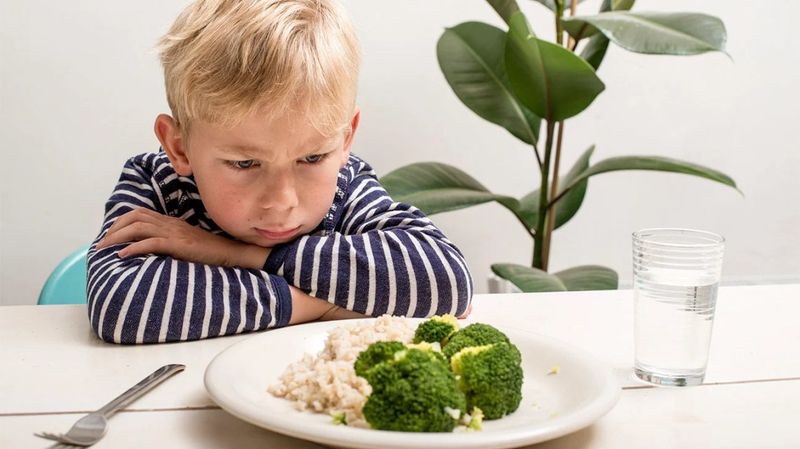20 Phrases Parents Say That Their Children Will Never Forget—Even In Their Adulthood

Certain words have a way of sticking with us, lingering long after the moment has passed. For many, the voices of our parents echo in our heads—whether in comfort, caution, or conflict. These phrases aren’t just nostalgic; they’re emotional time capsules that shape how we think, feel, and navigate the world.
1. “Because I said so.”

This phrase ends debates before they begin. As kids, it felt like a frustrating shutdown—an authority flex that left no room for negotiation or reasoning.
Looking back, it was often used when a parent was either too tired to explain or needed to establish a firm boundary. In adulthood, we realize that sometimes, decisions simply have to be made, no matter how unpopular they are. The phrase becomes a symbol of the hard calls parents must make.
It may have been infuriating in the moment, but it’s now oddly comforting to remember. It reminds us that rules—whether understood or not—were often rooted in care.
2. “You’ll understand when you’re older.”

As children, this statement felt like a way to avoid an explanation. It stirred curiosity, even resentment, especially when the topic felt important or confusing.
Yet as the years go by, many find themselves having those “ah-ha” moments where everything suddenly makes sense. Life experience turns the once-vague promise into a profound truth. Relationships, sacrifices, and challenges reveal the depth of what parents once meant.
It’s a phrase that matures with us. Once dismissed as a brush-off, it later becomes a bridge between generations—proof that some understanding really does come with age.
3. “I’m proud of you.”

Few words mean as much as these. When spoken by a parent, they affirm not just an achievement, but the entire effort, growth, and journey.
This phrase sticks because it’s tied to identity and self-worth. For many, hearing it felt like a milestone—validation that they were doing something right. Even adults still long to hear these words from their parents, regardless of how successful they become.
The emotional weight of this statement is immense. It builds confidence, security, and a deep-rooted sense of being seen. When genuine, it becomes a lifelong source of strength.
4. “I love you no matter what.”

Unconditional love is one of the most powerful gifts a parent can give. This phrase reassures children that they are accepted even at their worst or most uncertain.
Through mistakes, rebellious years, and identity shifts, these words offer emotional stability. They teach that love doesn’t hinge on performance or perfection. For kids, especially those struggling with self-doubt, this message is a lifeline.
As adults, we carry it into our own relationships—seeking or giving the same kind of love. It’s a phrase that becomes foundational, quietly shaping how we understand loyalty, acceptance, and family.
5. “Money doesn’t grow on trees.”

This saying often came up when asking for something that felt necessary—new shoes, a toy, a vacation. It was a wake-up call about financial reality.
Parents used it to draw attention to the value of money and the limits of their budget. While it might have seemed stingy at the time, the lesson behind it was long-lasting. Many adults now find themselves repeating it to their own children with a sigh of understanding.
It’s a phrase that planted early seeds of financial literacy. And in hindsight, it often marked the beginning of learning how to live within your means.
6. “If your friends jumped off a bridge, would you?”

Hearing this after asking to do something “because everyone else is doing it” used to feel like the ultimate shutdown. It was exasperating and, frankly, a bit dramatic to a child’s ears.
But the point wasn’t lost. This phrase was a warning against blind conformity. It encouraged independent thinking and questioned the reliability of peer influence. Over time, many come to appreciate its wisdom—especially when facing pressure to follow the crowd as adults.
Now, it’s a rhetorical question that lives on in our internal dialogue. It reminds us to stop, think, and ask whether we’re making a choice for ourselves—or just following the herd.
7. “You’re grounded!”

A dreaded phrase during childhood, these two words spelled social isolation, boredom, and parental disappointment. It was the ultimate punishment, especially during weekends or school breaks.
But grounding often came with a hidden lesson. It taught accountability, consequences, and respect for rules—whether that was curfews, grades, or honesty. The memory of being grounded sticks because it was a turning point moment—a line drawn to signal a boundary had been crossed.
Looking back, it wasn’t just a punishment. It was a statement that someone cared enough to correct you, even if it meant being the “bad guy” for a while.
8. “Stop crying or I’ll give you something to cry about.”

This phrase stung—not just emotionally, but in its sheer intensity. It blurred the lines between discipline and emotional suppression, often leaving a lasting impression.
At the time, it may have felt threatening or confusing. As adults, many interpret it as an expression of frustration from parents who didn’t know how to handle emotions. It reflects a generation that often viewed tears as weakness rather than a healthy response.
While controversial, this phrase is unforgettable. For some, it’s a cautionary tale of what not to repeat. For others, it’s a bittersweet reminder of how far we’ve come in understanding emotional health.
9. “Because I love you.”

This phrase wasn’t always used in tender moments. Sometimes, it followed a denied request, a curfew, or a stern lecture. But even then, it carried weight.
It reminded children that discipline wasn’t about control—it was rooted in care. Parents used it to explain the “why” behind the hard decisions. Whether it was insisting on safety, saying no to a party, or enforcing homework, this phrase framed the action in love.
In adulthood, we come to appreciate that kind of love—the one that doesn’t always say yes. It was tough at times, but it was always meant to protect.
10. “Do I look like I’m made of money?”

This classic comeback usually followed a request for something expensive or impractical. It was said with a touch of humor and a dose of reality.
The phrase highlighted the limits of a family’s budget and the effort behind every dollar earned. It stuck because it peeled back the curtain on adult responsibilities. As kids, it felt like a refusal; as adults, it feels like truth.
Now, many of us hear ourselves saying it without thinking. It’s become part of the everyday script of parenthood—and a subtle reminder that money comes with effort and intention.
11. “We’ll see.”

This phrase held both promise and uncertainty. It was often a parent’s way of deferring a decision without offering a solid yes or no—and for kids, that ambiguity was maddening.
Children quickly learned that “we’ll see” could mean anything from “maybe later” to “probably not.” Still, it left a glimmer of hope that made it preferable to a flat-out rejection. It was a diplomatic tool parents used to avoid confrontation or buy time.
In adulthood, many of us use it instinctively, understanding now how valuable that space for thought or postponement can be. It’s a subtle parenting maneuver that says, “I’m not ready to decide yet.”
12. “You can be anything you want to be.”

Inspiring and empowering, this phrase offered the gift of possibility. It was often said during moments of encouragement—before a big test, a performance, or a childhood dream being shared.
This message planted seeds of self-belief. It told children that limitations were not fixed and that dreams could be pursued. Even if reality later tempered those ambitions, the belief that someone saw potential in you is unforgettable.
For many, it was the foundation of confidence and the courage to try. As adults, we remember it not because it was always true, but because it gave us permission to believe it might be.
13. “Not in this house.”

Parents used this phrase to establish boundaries—usually in response to attitudes, behaviors, or trends they refused to tolerate. It was firm, definitive, and left no room for argument.
As kids, hearing it meant you had stepped outside the norms of what was acceptable at home. Whether it involved slang, clothing, or talking back, this line set the standard. It wasn’t always fair in the moment, but it created structure.
Now, we realize how important household values are. “Not in this house” wasn’t about control—it was about identity, culture, and the environment parents tried to preserve for their children.
14. “You’re not leaving this table until you finish your plate.”

Dinnertime became a battleground when this phrase was uttered. For many children, it meant long evenings sitting with cold food and crossed arms.
Parents believed it taught gratitude and waste reduction. It was also often tied to cultural or generational values about food scarcity. At the time, it felt like a power struggle. But over time, it became a symbol of discipline and family structure—however frustrating it was to live through.
In adulthood, it can stir mixed emotions—sometimes funny, sometimes complicated. But one thing’s for sure: you never forgot the meals you had to finish, bite by reluctant bite.
15. “I brought you into this world, and I can take you out.”

This dramatic declaration was often said with mock-seriousness and theatrical flair. While it sounded menacing, it was typically meant to shock, not threaten.
For many, it became a memorable expression of parental authority, exaggerated to the point of humor. Kids usually rolled their eyes or laughed nervously—but they got the point: don’t push your luck. It conveyed love wrapped in exasperation.
As adults, we repeat it with a smile, more as a joke than a warning. It’s one of those phrases that lives on not because of fear—but because it became a running family punchline.
16. “As long as you live under my roof…”

Hearing this meant the rules were non-negotiable. It often came after a heated disagreement, signaling that a child’s independence didn’t quite extend past the front door.
This phrase set a clear power dynamic—parents were in charge, and their house meant their rules. While it could feel oppressive at the time, it also represented a structure of responsibility. Housing, food, and protection came with expectations and boundaries.
As we grow older, the meaning shifts. We see how much was provided under that roof, and how those rules helped shape our understanding of respect, contribution, and the cost of independence.
17. “One day, you’ll thank me.”

This phrase often followed moments of disappointment or discipline. It sounded presumptuous back then—but it carried a quiet confidence that time would prove them right.
Children didn’t want to believe that unfair curfews, strict expectations, or tough love would ever be appreciated. But time has a way of turning rebellion into reflection. Eventually, many realize those frustrating moments were rooted in wisdom and care.
In adulthood, this phrase becomes humbling. We find ourselves saying it to others—or even just silently thinking it when life’s lessons catch up. It’s a reminder that gratitude sometimes takes years to grow.
18. “There are children starving in the world.”

Said most often during mealtime, this phrase aimed to spark gratitude—or guilt—when kids didn’t want to eat. It introduced global awareness in a way that felt confusing to young minds.
At the time, it was hard to connect a half-eaten sandwich to poverty across the globe. But the phrase planted a seed of empathy and awareness of privilege. It may not have changed immediate behavior, but the sentiment lingered.
As adults, we understand the deeper message. It wasn’t just about finishing dinner—it was about learning to appreciate what we have and to not take it for granted.
19. “Because I love you, I have to say no.”

Rejection wrapped in affection, this phrase appeared during moments of disappointment—being denied a party, a toy, or a late night out. But it softened the blow.
The intent was to reassure that boundaries weren’t about control, but care. Parents used it to show that saying no was often harder for them than it was for us. Over time, it shaped how we understand love that isn’t permissive.
Today, we recognize that this form of love involves restraint and responsibility. It’s a version of love that prioritizes long-term well-being over temporary happiness—and that’s what makes it unforgettable.
20. “You’ll always be my baby.”

This tender phrase was usually said during a moment of closeness—before bed, at a graduation, or during a heartfelt conversation. It captured a parent’s undying attachment, no matter how old we got.
To a child, it was both comforting and slightly embarrassing. To a teen, it felt silly. But as we age, we realize how meaningful it is. That phrase cuts through time and milestones. It reminds us that we’re never too grown to be loved like we were on day one.
Even as adults, hearing it can bring tears. It connects us to our roots—and to the people who’ve loved us the longest.

Comments
Loading…